Full Paper or Abstract Submission Due:
December 15, 2023
Notification of Draft Paper Acceptance:
January 15, 2024
Registration Deadline:
February 05, 2024
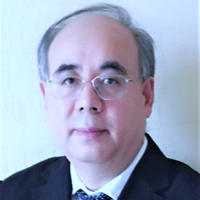 Prof. Wei Hong, IEEE Fellow, Southeast University, China
Prof. Wei Hong, IEEE Fellow, Southeast University, China
Biography: Wei Hong received the B.S. degree from the University of Information Engineering, Zhengzhou, China, in 1982, and the M.S. and PhD degrees from Southeast University, Nanjing, China, in 1985 and 1988, respectively, all in radio engineering.
Since 1988, he has been with the State Key Laboratory of Millimeter Waves (SKLMMW) and serves for the director of the lab during 2003-2021, and is currently a professor of the School of Information Science and Engineering, Southeast University. In 1993, 1995, 1996, 1997 and 1998, he was a short-term visiting scholar with the University of California at Berkeley and at Santa Cruz, respectively. He has been engaged in numerical methods for electromagnetic problems, millimeter wave theory and technology, antennas, RF technology for wireless communications etc. He has authored and co-authored over 300 technical publications and two books. He twice awarded the National Natural Prizes, four times awarded the first-class Science and Technology Progress Prizes issued by the Ministry of Education of China and Jiangsu Province Government etc. Besides, he also received the Foundations for China Distinguished Young Investigators and for “Innovation Group” issued by NSF of China.
Dr. Hong is a Fellow of IEEE, Fellow of CIE, the vice presidents of the CIE Microwave Society and Antenna Society, the Chair of the IEEE MTT-S/AP-S/EMC-S Joint Nanjing Chapter, and was an elected IEEE MTT-S AdCom Member during 2014-2016. He served as the Associate Editor of the IEEE Trans. on MTT from 2007 to 2010.
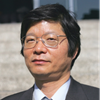 Prof. Jin Jang, Fellow of SID, Kyung Hee Univesity, Korea
Prof. Jin Jang, Fellow of SID, Kyung Hee Univesity, Korea
Biography: Jin Jang is a Professor at Department of Information Display of Kyung Hee University. His current research programs are in oxide and LTPS TFTs for displays, TFT circuits and TFT application to sensors, QLED, Micro-LED and flexible AMOLED. He is the author or co-author of over 950 technical publications of which over 600 are in SCI Journals such as Nature, Advanced Materials, Advanced Functional Materials, Advanced Energy Materials, Energy Environmental Science, APL, IEEE TED and IEEE EDL. He is currently a Director of Advanced Display Research Center (ADRC), and had served as Program Chair of SID Symposium 2007 and General Chair of SID Display Week in 2009 and General Chair of IMID 2012, 2013. He is a Fellow of SID and he was awarded George Smith Award from IEEE in 2012, Slotto Owaki Prize from SID in 2015 and Ho-Am Award in 2017.
 Prof. Massimo Poncino, IEEE Fellow, Politecnico di Torino, Italy
Prof. Massimo Poncino, IEEE Fellow, Politecnico di Torino, Italy
Biography: Massimo Poncino is Full Professor of Computer Engineering at Politecnico di Torino.
His research interests include the design automation of digital systems, with special emphasis on low-power embedded systems, modeling and the simulation of digital systems.
He has coauthored more than 350 publications in the above areas. Many of these publications are relative to the results of industry-oriented funded research projects, including collaborations with various companies from the ICT, semiconductor, and automotive domain. Since 1999, Massimo Poncino has been involved, as a technical manager or coordinator of more than 30 of EC-funded projects.
Massimo Poncino has served as member of Technical Program Committee of many international IEEE and ACM conferences, and also served as a reviewer for a number of journal and conferences of the IEEE and ACM. He was the Technical Program Chair of the 2011 IEEE/ACM Symposium on Low-Power Electronics and Design and General co-Chair for the 2012 IEEE/ACM Symposium on Low-Power Electronics and Design. He has served in the Editorial Board of several international journals and is currently serving in the Editorial Board of IEEE Design & Test and ACM Transactions on Design Automation of Electronic Systems (TODAES).
Massimo Poncino is a Fellow of the IEEE, member of the ACM SIGDA Low-Power Technical Committee, and a Member the Circuit and Systems Society.
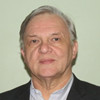 Prof. Stefan Mozar, IEEE Fellow, Guangdong University of Technology, China; Consultant and Adjunct Professor, GDUT Dynexsys, Australia
Prof. Stefan Mozar, IEEE Fellow, Guangdong University of Technology, China; Consultant and Adjunct Professor, GDUT Dynexsys, Australia
Biography: Dr Stefan Mozar studied engineering at the University of NSW (BE, MEngSc), and received his PhD in Electronics Engineering from Okayama University (Japan). His MBA was awarded by UTS. He is an independent consultant who works internationally. He holds an adjunct professorship at Guangdong University of Technology, China. Dr Mozar is the current Chair of a new IEEE initiative, the Life Science Technical Community (IEEE LSTC), which is bringing life science, engineering, and medical communities together for the benefit of humanity. He is the Past President of the IEEE Consumer Electronics Society. His expertise lies in communication systems, power electronics, reliability and safety engineering. He has contributed towards many successful projects, which have won about 30 international and national design awards. This includes an Australian Design Award. He has worked with a number of Asian, Australian, and British Universities. He is an entrepreneur, who has starting a number of technology companies. He is currently developing probabilistic based safety models for electronic products. His work has resulted in inventions, patents, and publications. He is the editor of the 6th edition of McGraw Hill Electronics Engineering Handbook that will be released in the first quarter of 2019. He is recipient of the IEEE Millennium Medal, and the 2017 David Robinson Award, issued by Engineers Australia. He received many other awards from the IEEE and other organisations. He frequently is invited to present technical seminars, and give invited talks internationally. He has worked and studied on 4 continents.
 Prof. Amine Bermak, IEEE Fellow, Hamad Bin Khalifa University, Qatar
Prof. Amine Bermak, IEEE Fellow, Hamad Bin Khalifa University, Qatar
Biography: Prof. Amine Bermak received the Masters and PhD degrees, both in electrical and electronic engineering (microelectronics and Microsystems), from Paul Sabatier University, Toulouse, France in 1994 and 1998, respectively. During his PhD, he was part of the Microsystems and Microstructures Research Group at the French National Research Centre LAAS-CNRS, where he developed a 3D VLSI chip for artificial neural network classification and detection applications in a project funded by Motorola. While finalizing his PhD, he was offered a Post-doc position at the Advanced Computer Architecture group at York University – England, to work on VLSI implementation of CMM neural network for vision applications in a project funded by British Aerospace.
Prof. Bermak was nominated for the 2013 Hong Kong UGC best teacher award (for all HK Universities). He is the recipient of the 2011 University Michael G. Gale Medal for distinguished teaching (Highest University-wide Teaching Award). This gold medal is established to recognize excellence in teaching and only one recipient/year (out-of over 550 faculty) is honored for his/her contribution. Prof. Bermak is also a two-time recipient of the “Engineering School Teaching Excellence Award" in HKUST for 2004 and 2009, respectively.
Prof. Bermak has received many distinguished awards, including the 2016 DAC best design context award, the “Best paper award” at IEEE International Symposium on Circuits and systems ISCAS 2010; the 2004 “IEEE Chester Sall Award”; the IEEE Service Award from IEEE Computer Society and the “Best Paper Award” at the 2005 International Workshop on System-On-Chip for Real-Time Applications. He has published over 250 articles in journals, book chapters and conference proceedings and designed over 50 chips. He has supervised 25 PhD and 16 MPhil students. He has served on the editorial board of IEEE Transactions on Very Large Scale Integration (VLSI) Systems and IEEE Transactions on Circuits and Systems II. He is also currently serving on the editorial board of IEEE Transactions on Biomedical Circuits and Systems; IEEE Transactions on Electron Devices and Nature Scientific Reports. He is the guest editor of the November 2010 special issue in IEEE Transactions on Biomedical Circuits and Systems. Prof. Bermak is a Fellow of IEEE and IEEE distinguished Lecturer. He was the co-director of MIT-HKUST Consortium.
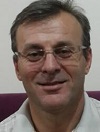 Prof. Mehmet Ertugrul, Ataturk University, Turkey & University Putra Malaysia (UPM), Malaysia
Prof. Mehmet Ertugrul, Ataturk University, Turkey & University Putra Malaysia (UPM), Malaysia
Biography: Prof. Dr. Mehmet Ertugrul was born in Trabzon, Turkey, in 1966. He received the B.Sc. degree from the Department of Physics, in 1986, and the M.Sc. and Ph.D. degrees in physics, in 1990 and 1994, respectively. From 1994 to 1996, 1996 to 2001, and 2001—2002, he was, respectively, an Assistant Professor, an Associate Professor, and a Full Professor at the Department of Physics, Ataturk University, where he has been a Full Professor at the Department of Electrical and Electronics Engineering since 2003. He is the author or co-author of more than 250 papers published in international journals and over 200 publications in national and international conference proceedings.
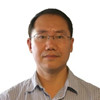 Prof. Everett X. Wang, Guangdong University of Technology, China
Prof. Everett X. Wang, Guangdong University of Technology, China
Biography: Everett X. Wang received the BS from Peking University in 1982. In 1986 he received the MS from Institute of Theoretical Physics, Academy of Sciences of China and Ph.D. from University of Texas at Austin in microelectronics in 1993. He then joined Intel Corporation as Sr. Engineer, Staff Engineer and Sr. Staff Engineer, working on stress modeling, quantum tunneling, quantum size effect, 3D mesh generation, hydrodynamic and Monte Carlo models. In 2000 he transferred to Photonic Technology Operation in Intel as a program manager for thermal optical switch products. In 2003 he joined Design Technology Service of Intel as team leader working on hole mobility under arbitrary stress using 2D quantum transport and Monte Carlo method. In 2006, he founded a high-tech startup for developing energy efficient transportation systems. Since 2011, he has been with Guangdong University of Technology as 100-talent-plan distinguished professor. Dr. Wang authored and co-authored 54 journal and conference papers. He also holds 34 approved and pending patents. Dr. Wang’s interests include receiver and system design for global navigation satellite systems, transport models for advanced electron devices, modeling and control of robotic systems as well as deep learning in medical applications.
 Prof. Tayeb Mohammed-Brahim, University of Rennes 1, France, Southeast University, China
Prof. Tayeb Mohammed-Brahim, University of Rennes 1, France, Southeast University, China
Biography: Tayeb Mohammed-Brahim is currently emeritus professor in Rennes 1 University (France) and invited professor in South-East University of Nanjing (China). He was previously Head of Microelectronics & Microsensors Department of the Institute of Electronics and Telecommunications of Rennes and Director of the Common Center on Microelectronics in the west of France. He got his PhD (Doctorat d'Etat) in Paris-XI University (France) and he founded the thin-film Laboratory in Algiers University (Algeria). Then he moved to Caen University (France) where he created the reliability Laboratory. After that and since 2000, he moved to Rennes 1 University where he became on 2007 the head of Microelectronics Group becoming the Microelectronics and Microsensors Department after 2012. He is mainly involved in the field of thin film and nanowire devices based on amorphous, micro-poly crystalline silicon films or organic films: Photovoltaic cells, Thin Film Transistors for flat panel displays and OLEDs, chemical and mechanical sensors. Presently, his main activities focus on flexible electronics particularly on flexible organic electronics. He is author of more than 300 papers on these different fields.
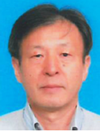 Prof. Takashi NOGUCHI, University of the Ryukyus, Japan
Prof. Takashi NOGUCHI, University of the Ryukyus, Japan
Biography: Takashi Noguchi received M.S. degree in 1979 and Ph.D. in 1992 from Doshisha University. In 1979, he joined Sony Corp., and contributed in R&D on Si MOS LSIs as well as Si TFTs (LTPS). In1994, he stayed in MIT as a visiting scientist. In 1998, he managed a research on novel Si devices in Sony Research Center. In 2001, he moved to France as a research scientist of CNRS in Universite Paris-Sud. In 2002, he moved to Korea and he managed two research projects as an executive member in SAIT, and also contributed in SungKyunKwan University. After 2006, he has contributed as a professor in University of the Ryukyus in Japan. After April 2019, he is a professor emeritus in Univ. of the Ryukyus.
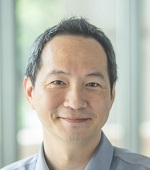 Prof. Daniel Chua, National University of Singapore (NUS), Singapore
Prof. Daniel Chua, National University of Singapore (NUS), Singapore
Biography: Daniel Chua is an Associate Professor in the Department of Materials Science and Engineering. He received his PhD in Electrical Engineering in 2004 from Cambridge University and his B.Sc (Honours) in Physics in 1998 from the National University of Singapore (NUS). He worked in the semiconductor and hard disk media area as an applications engineer in surface characterization and failure analysis before embarking on his higher studies. After his PhD, he continued as a Postdoctoral Research Associate and Junior Research Fellow before joining NUS in 2005. His research interest lies in the bottoms-up approach of integrating 1D, 2D materials in Metal-ion batteries, PEM fuel cells and Electron field emitters.
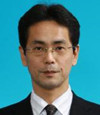 Prof. Mamoru Furuta, Kochi University of Technology, Japan
Prof. Mamoru Furuta, Kochi University of Technology, Japan
Biography: Mamoru Furuta is a Professor at Department of Environmental Science and Engineering of Kochi University of Technology, Japan. His current research interests are metal oxide semiconductors for TFTs and their application to imaging devices. In 1988-2004, he worked in the Central Research Laboratory of Panasonic, and Toshiba Matsushita Display Technology Co., Ltd. He had wide variety of job experiences in company not only the R&D but also a mass production including a start up of the polycrystalline silicon (LTPS) TFT factory in Singapore. Since 2005, he joined Kochi University of Technology, and has been working on the research of metal oxide semiconductors for TFT. In 2006, he demonstrated a pioneering work of the metal oxide TFT which was the worlds’ first LCD driven by ZnO TFT at the conference of the Society for Information Display (SID’06) which was held at San Francisco, USA. He received the Distinguished Paper Award from the SID in 2006, the Outstanding Poster Award from the International Display Workshop (IDW) in 2006, 2013 and 2016, and the Niwa-Takayanagi Paper Award from the Institute of Image Information and Television Engineers (ITE, Japan) in 2011. He is a member of editorial board of Applied Physics Express (APEX) and Japanese Journal of Applied Physics (JJAP), Japan Society of Applied Physics, and a senior member of the IEEE.
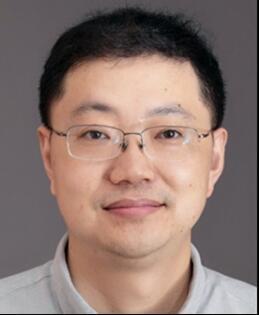 Prof. Jixin Chen, Southeast University, China
Prof. Jixin Chen, Southeast University, China
Biography: Jixin Chen (Member, IEEE) was born in Jiangsu, China, in 1976. He received the B.S. degree in radio engineering and the M.S. and Ph.D. degrees in electromagnetic field and microwave technique from Southeast University, Nanjing, China, in 1998, 2002, and 2006, respectively.,Since 1998, he has been with the State Key Laboratory of Millimeter Waves, Southeast University. He is currently a Professor with the School of Information Science and Engineering and the Director of the Department of Electromagnetic Field and Microwave Engineering. His current research interests include microwave and millimeter-wave circuit design and MMIC design.,Dr. Chen was a recipient of the 2016 Keysight Early Career Professor Award and the 2016 National Natural Science Prize Second Prize. He has served as TPC Co-Chair of HSIC2012, UCMMT2012, LOC Co-Chair of APMC2015, Session Co-Chair of iWAT2011, ISSSE2010, APMC2007, and reviewer for IEEE Transactions on Microwave Theory and Techniques and IEEE Microwave and Wireless Components Letters (MWCL).
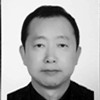 Prof. Byung Seong Bae, Hoseo University, Korea
Prof. Byung Seong Bae, Hoseo University, Korea
Biography: Byung Seong Bae received the B.S. degree in atomic nuclear engineering from the Seoul National University, Seoul, Korea, in 1984 and the M.S. and Ph.D. degrees in applied physics from the Korea Advanced Institute of Science and Technology, Seoul, Korea in 1986, and 1991, respectively. Between 1991 and 1998, he worked at the Samsung Electronics on the development of amorphous and poly-silicon TFT LCD with integrated driver. From 1999 to 2003, he set up the high-temperature poly-silicon TFT LCD factory and developed micro-display for projection display at ILJIN Display. Since 2006, he is a Professor, School of Electronics and Display Engineering of the Hoseo University, Asan, Korea.
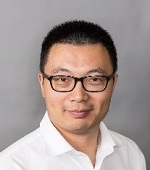 Dr. Zhaojun Han, University of New South Wales, Australia
Dr. Zhaojun Han, University of New South Wales, Australia
Biography: Dr. Zhaojun Han is currently a Future Fellow at UNSW and a Senior Research Scientist at CSIRO. He graduated with PhD and B.Eng degrees in 2009 and 2004 respectively from Nanyang Technological University, Singapore. His research focuses on developing low-dimensional functional materials to tackle the challenges in materials, energy and environmental science. He has published ~150 peer-reviewed papers in journals including Chem. Soc. Rev., Energy Environ. Sci., Adv. Mater., J. Am. Chem. Soc. and Nat. Comm, with a total citation of ~6500 and H-index of 46. He is the key inventor of two graphene-based technologies, the GraphAir technology and the vertical branched graphene technology. He is the recipient of many awards, including ARC Future Fellowship, 40 under 40 Most Influential Asian-Australian, CSIRO Corporate Citizen Award, Australia-China Young Scientists Exchange Program Award, ATSE Priming Grant Award, Julius Career Award, and ARC Discovery Early-Career Researcher Award (DECRA).
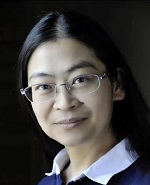 Prof. Min Xu, East China Normal University, China
Prof. Min Xu, East China Normal University, China
Biography: Professor Min Xu of East China Normal University (ECNU) is currently the Vice Dean of school of physics and electronic sciences. She received her PhD in chemistry from Nanjing University. Then she worked as a Postdoc in ECNU, and then be associate professor, professor of ECNU. She also worked as research fellow in Nanyang technological university (2004-2006) and visiting scholar in the University of Akron (2016-2017). She is now the editorial board member of “functional polymer materials”, committee member of polymer characterization council of Chinese Chemistry Society (CCS) and Cellulose council of CCS. Her research focus on polymer composite materials, especially natural polymer composite materials, including adsorption materials, multi-functional hydrogels, natural polymer based smart sensors and supercapacitors applied for flexible and wearable devices. Besides, she is skilled in mechanism study with solid-state NMR.
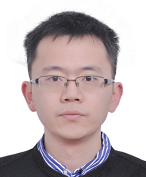 Prof. Yang Gao, East China University of Science and Technology, China
Prof. Yang Gao, East China University of Science and Technology, China
Biography: Prof. Yang Gao received the B.S. and the M.S. degrees from East China Normal University, Shanghai, China, in 2005 and 2008, respectively, and PhD degrees from University of Nebraska-Lincoln, USA, in 2013. From 2013 to 2014, and 2014 to 2016, he is postdoctoral fellow in University of Nebraska-Lincoln and University of Houston, respectively. Since 2016, he is, respectively, an Assistant Professor and a Full Professor at School of Mechanical and Power Engineering, East China University of Science and Technology, Shanghai China. He is the author or co-author of 80 papers published in international journals.


